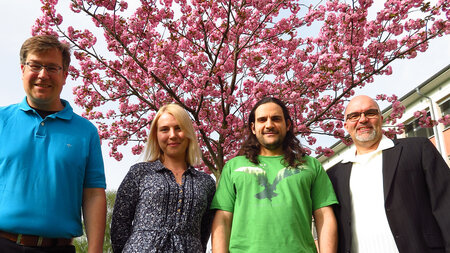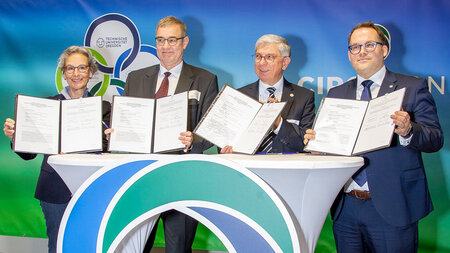Refugees in the Federal State of Saxony
Since 2011, the refugee flows to Europe have greatly increased, putting European migration politics under pressure. In particular, the arrival of refugees by sea on the Italian island of Lampedusa as well as the dynamics on the so-called Balkan-route generated considerable media attention, dismay and, accordingly, political pressure on the European Commission and on individual member states which are confronted with refugees who travelled onward.
Meanwhile, the consequences of this development are strongly felt at the local level. Facing growing contingents of refugees whom they have to accommodate, local administrations are put under pressure, particularly as the parallel process of decentralization of refugee housing and improvements of their reception situation is called into question. On the other hand, there are growing concerns in parts of the local population caused by the visible presence of refugees in their local environment. Objections are frequently used by right-wing political actors trying to stir xenophobic reactions of the public. Not least, these developments are a result of a common discursive strategy to divide migrants into desirable and deserving versus undesirable and undeserving.
Our research initiative „Refugees in the Federal State of Saxony“ aims to provide a systematic and comparative research on the process of arrival on the local level, including management strategies of the local administration, the development of public discourse in the locality, and on reflections of the reception situation from the migrants’ perspective. The initiative thus contributes to the overarching goals of the IMISCOE Research Initiative "Refugees in European Localities: Reception, Perceptions and Policies", which provides for profound insight in the differences of reception processes throughout countries and regions of the European Union.
Research perspectives and methods
Administrative activities and strategies
This work-package deals with refugee reception practices on local level and investigates the existing structures and regulations as well as the perspectives of the persons in charge. The goal is to gain insight into the current practices on the administrative level and their public impact. Research methods include expert interviews, desk research and participant observation.
Public discourses on local level
This work-package deals with the development of public discourses as reaction to the reception of refugees. Which perceptions exist in the local societies regarding the motives and circumstances of flight and on reception and integration of refugees? How are those perceptions developed, how are they shaped by media and public debate, and which consequences arise from the perceptions that are articulated? Research methods include analysis of newspaper articles and social media, participant observation at town meetings as well as expert interviews and document analysis.
Reception situation from the perspective of refugees
In this work-package, we are aiming to find out how refugees perceive the reception process. How do they make sense of their new surroundings and of the spatio-temporal structures that are imposed on them by regulations and housing situations? What are their strategies to make home and to get in contact with locals? What experiences do they have concerning their reception and acculturation process, how are those experiences contextualized and which consequences are drawn for future decisions? Research methods include participant observation, narrative interviews as well as walking interviews.





